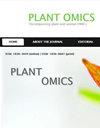Defatted coagulant seeds of Moringa oleifera and Moringa peregrena mediate alleviation of cadmium toxicity in wheat (Triticum aestivum L.) plant
Q3 Agricultural and Biological Sciences
引用次数: 6
Abstract
Contaminated soil with toxic heavy metals, particularly cadmium, is an environmental originated challenge from various industrial activities such as effluents and mining and affecting crop growth. Cadmium removal from the soil is a problem, therefore we introduced our approach for reinforcing cadmium tolerance in wheat plant by applying powder (1g/kg soil) of fat-free seeds 'defatted seed or seed-cake' from Moringa oleifera and Moringa peregrena trees before wheat exposure to three levels of soil contamination with cadmium in soil solution (0.5, 1.0 and 1.5 mM) for 35 days. Our data showed that accumulation of Cd in wheat was concentration-dependent and was 4-folds higher in roots than in the shoots. In shoots and roots, cadmium accumulation was 3and 2folds higher at 1.5 mM Cd, respectively. Shoot length and dry mass have reduced by 30 and 58%, respectively. In addition, the photosynthetic pigments have decreased by 50% and the protein profile was altered in leaf. Moringa defatted seeds powder had conferred protection against cadmium toxicity in wheat. Upon defatted seeds pre-treatments, Cd accumulation has diminished by 3 and 2-folds in shoots and roots, respectively and wheat growth and physiological parameters have improved spectacularly. Protein polymorphism and SDS-gel electrophoresis confirmed the appearance of eight newly expressed protein bands in response to Moringa pre-treatments in absence of Cd. Eleven new bands were also expressed under the combined effect of cadmium and Moringa together in wheat leaf and weighed: 261.38, 217.77, 177.38, 135.4, 114.0, 97.0, 74.14, 51.6, 38.2, 24.0 and 13.5 KDa. We believed that the new bands have participated with wheat tolerance. In conclusion, we suggested two strategies: first, Moringa seeds have coagulated cadmium in the soil preventing its absorption and accumulation in wheat plants. Second, wheat newly expressed protein has assisted cadmium detoxification via binding to some peptides, and/or through sequestrating cadmium in the vacuole as metallothioneins and/or polychelatins.辣木(Moringa oleifera)和辣木(Moringa peregrena)脱脂凝固剂种子介导减轻小麦(Triticum aestivum L.)植株的镉毒性
污染土壤的有毒重金属,特别是镉,是各种工业活动(如废水和采矿)对环境造成的挑战,并影响作物生长。土壤中镉的去除是一个问题,因此,我们介绍了一种增强小麦耐镉性的方法,即在小麦暴露于三种镉污染水平的土壤溶液(0.5,1.0和1.5 mM)之前,在辣木和辣木树的脱脂种子(脱脂种子或籽饼)中施用粉末(1g/kg土壤)。我们的数据表明,小麦的Cd积累是浓度依赖性的,根的Cd积累是茎的4倍。在1.5 mM Cd处理下,茎部和根部镉积累量分别增加3倍和2倍。茎长和干质量分别减少30%和58%。此外,叶片光合色素减少50%,蛋白质谱发生改变。辣木脱脂种子粉对小麦镉中毒具有保护作用。脱脂种子预处理后,小麦茎部和根部Cd积累量分别减少了3倍和2倍,小麦的生长和生理参数均有显著改善。蛋白质多态性和sds -凝胶电泳证实,在无镉条件下辣木预处理下,小麦叶片中出现了8条新表达的蛋白条带,在镉和辣木共同作用下,小麦叶片中也有11条新表达的蛋白条带,其质量分别为261.38、217.77、177.38、135.4、114.0、97.0、74.14、51.6、38.2、24.0和13.5 KDa。我们认为,新的乐队参与了小麦的耐受性。综上所述,我们提出了两种对策:第一,辣木种子凝结土壤中的镉,阻止其在小麦植株中的吸收和积累。其次,小麦新表达的蛋白质通过与一些肽结合,或通过将镉作为金属硫蛋白和/或多螯合蛋白在液泡中隔离来协助镉的解毒。
本文章由计算机程序翻译,如有差异,请以英文原文为准。
求助全文
约1分钟内获得全文
求助全文
来源期刊

Plant Omics
生物-植物科学
CiteScore
1.30
自引率
0.00%
发文量
0
审稿时长
6 months
期刊介绍:
Plant OMICS is an international, peer-reviewed publication that gathers and disseminates fundamental and applied knowledge in almost all area of molecular plant and animal biology, particularly OMICS-es including:
Coverage extends to the most corners of plant and animal biology, including molecular biology, genetics, functional and non-functional molecular breeding and physiology, developmental biology, and new technologies such as vaccines. This journal also covers the combination of many areas of molecular plant and animal biology. Plant Omics is also exteremely interested in molecular aspects of stress biology in plants and animals, including molecular physiology.
 求助内容:
求助内容: 应助结果提醒方式:
应助结果提醒方式:


